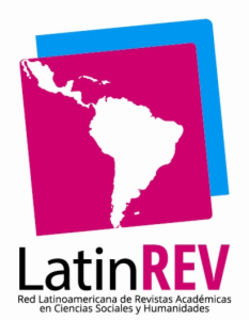WATER GOVERNANCE AND CONFLICT NEGOTIATION: AN ANALYSIS OF THE GUANDU RIVER COMMITTEE (RJ)
DOI:
https://doi.org/10.26512/2236-56562016e40092Keywords:
Water Governance, River Basin Committee, Conflicts, Guandu RiverAbstract
This article discusses an important attribution of the river basin committees: to negotiate water confl icts. This discussion was grounded by the changes introduced by the Brazilian Water Law. The research studies especially the Guandu Committee, located in the state of Rio de Janeiro in Brazil, and the confl ict associated with the operation of a landfi ll called CTR Santa Rosa over the Piranema Aquifer. The research had two mainly methods: reading the registers of the Committee’s meetings and realizing interviews with members of the forum. As main results, it was observed that although an intense mobilization about the confl ict, the participation of civil society in the discussions occurred in the forum was not signifi cantly. On the other hand, it was noted that the Committee participated actively in the discussions on the landfi ll project. However, the results of the analysis realized by the Committee were not widely covered in the environmental licensing process of the CTR Santa Rosa. An argument which explain the limitations of the Committee in the decision making process about water management in the state is associated with the multiple actors involved in the confl ict studied, which are not all included in the Committee jurisdiction.
Downloads
References
ACSELRAD, H. (2004a). As práticas espaciais e o campo dos confl itos ambientais. In ACSELRAD, H. (Org.) Confl itos ambientais no Brasil. Relume-Dumará; Fundação Heinrich Böll, Rio de Janeiro: p. 13-35.
______. (2004b). Justiça ambiental – ação coletiva e estratégias argumentativas. In ACSELRAD, H. et al. (Org.). Justiça ambiental e cidadania. Relume-Dumará, Rio de Janeiro: p. 23-40.
AMIN, A.; THRIFT, N. (1995). Institutional issues for the European regions: from markets and plans to socioeconomics and powers of association. Economy and Society, 24 (1), p. 41-66.
CAMPOS, V. N. O.; FRACALANZA, A. P. (2010). Governança das águas no Brasil: Confl itos pela apropriação da água e a busca da integração como consenso. Ambiente e Sociedade, XIII (2), p. 365-382.
COMITÊ GUANDU. (2004). Regimento interno. In: http://www.comiteguandu.org.br.
COSTA, V. M. F.; ALONSO, A. M. (2002). Para uma sociologia dos confl itos ambientais no Brasil. In ALIMOND, H. (Org.). Ecología Política Naturaleza, sociedad y utopía. Consejo Latinoamericano de Ciencias Sociales – Clacso, Buenos Aires: p. 115-135.
DALLABRIDA, V. R.; BECKER, D. F. (2003). Governança Territorial: um primeiro passo na construção de uma proposta teórico-metodológica. Desenvolvimento em questão, 1(2), p. 73-97.
FERNÁNDEZ, V. R. (2004). Densidad institucional, innovación colectiva y desarrollo de lãs cadenas de valor local: um triángulo estratégico em la evolución de lós enfoques regionalistas durante lós 90s. Redes, 9 (1), p. 7-35.
GOES, M. H. de B. et al (2010). Considerações sobre o EIA da instalação de uma Central de Tratamento e Disposição de Resíduos no município de Seropédica-RJ. Documento produzido pelo Departamento de Geociências, Instituto de Agronomia –UFRuralRJ e EMBRAPA.
GUSMÃO, P. P. De. (2013). Governança e Desenvolvimento territorial na área de infl uência de Resende (RJ). Universidade Federal do Rio de Janeiro. XII Workshop RECIME. Dourados, (mimeo).
HAESBAERT, R. (2013). De espaço e território, estrutura e processo. Economía, Sociedad y Territorio, 8 (43), p. 805-815.
HAESBAERT, R. (2005). Da desterritorialização à multiterritorialidade. In: X Encontro de Geógrafos da América Latina. São Paulo.
JACOBI, P. R. (2009). Governança da água no Brasil. In RIBEIRO, W. C. (Org.). Governança da água no Brasil: uma visão interdisciplinar. Annablume; Fapesp; CNPq, São Paulo: p. 35-59.
KAZANCIGIL, A. (2002). A regulação social e a governança democrática da mundialização. In MILANI, C. et al. (Orgs.). Democracia e Governança Mundial – que regulações para o século XXI. Ed. Universidade/UFRGS/UNESCO, Porto Alegre: p. 226-291.
LITTLE, P. E. (2006). Ecologia política como etnografi a: um guia teórico e metodológico. Horizontes Antropológicos, 12 (25), p. 85-103.
MILANI, C.; SOLINÍS, G. (2002). Pensar a democracia na governança mundial: algumas pistas para o futuro. In MILANI, C. et al. (Orgs.). Democracia e governança mundial – que regulações para o século XXI. Ed. Universidade/UFRGS/UNESCO, Porto Alegre: p. 266-291.
PIRES DO RIO, G. A. (2008). Gestão de Águas: um desafi o geoinstitucional. In OLIVEIRA, M. P. et al. (Orgs.). O Brasil, a América Latina e o mundo: espacialidades contemporâneas. Lamparina/ANPEGE, Rio de Janeiro: p. 220-236.
PIRES DO RIO, G. A.; MOURA, V. P. (2003). Dimensões territoriais da regulação dos recursos hídricos no Brasil. In: I Seminário Água: questões sociais, políticoinstitucionais e territoriais. Campinas.
PIRES DO RIO, G. A.; PEIXOTO, M. N. (2001). O. Superfícies de Regulação e confl itos de atribuição da gestão de recursos hídricos. Território, 10, 51-65.
SACK, R. (1986). Human Territoriality: its theory and history. Cambridge: Cambridge University Press. SONDOTÉCNICA ENGENHARIA DE SOLOS S.A. (2007). (Sondotécnica). Plano Estratégico de Recursos Hídricos da Bacia Hidrográfi ca dos rios Guandu, da Guarda e Guandu Mirim – Relatório Gerencial. Rio de Janeiro: Sondotécnica/ Comitê Guandu/ANA.
THEODORO, S. H. et al. (2005). Primeira parte – uma crise anunciada. In THEODORO, S. H. (Org.). Mediação de confl itos socioambientais. Garamond, Rio de Janeiro: p. 23-71.
VEREDA ESTUDOS E EXECUÇÃO DE PROJETOS LTDA (VEREDA). (2007). Relatório de Impacto Ambiental da Central de Tratamento e Disposição fi nal de Resíduos Santa Rosa, 2007. In: http://www.inea.rj.gov.br/fma/download_rima.asp.
ZHOURI, A.; LASCHEFSKI, K. (2010). Desenvolvimento e confl itos ambientais: um novo campo de investigação. In ZHOURI, A.; LASCHEFSKI, K. (Orgs.). Desenvolvimento e confl itos ambientais. Editora UFMG, Belo Horizonte: p. 11-31.
Downloads
Published
Issue
Section
License

This work is licensed under a Creative Commons Attribution-NonCommercial-ShareAlike 4.0 International License.






